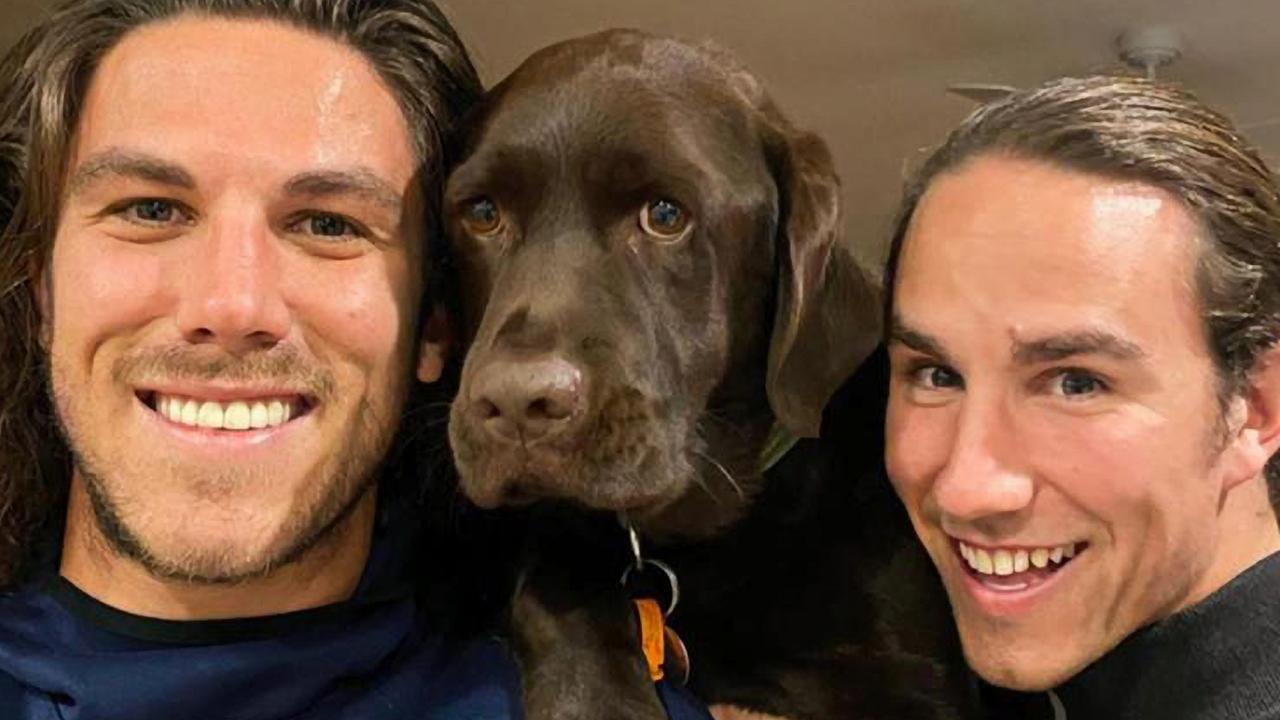Australian Border Force and TGA op leads to seizure of $11m of illegal vapes
Australian Border Force has uncovered suspected illegal vapes in NSW, Victoria, Queensland and Western Australia with a multimillion-dollar street value. See photos, watch video.
Crime in Focus
Don't miss out on the headlines from Crime in Focus. Followed categories will be added to My News.
More than 35 tonnes of vapes suspected of containing nicotine with a street value of $11 million have been seized across the country in the past few weeks as Australia’s vaping crisis continues to escalate.
In a crackdown led by the Australian Border Force (ABF) and the Therapeutic Goods Administration (TGA) the huge shipments have been discovered being brought into the country in plain sight - using air cargo and international mail.
Officers from Campaign Obelia uncovered the vapes in NSW, Victoria, Queensland and Western Australia, and found that out of the 35 tonnes, an estimated 92 per cent or 376,000 vapes had fake labels claiming they were nicotine-free.
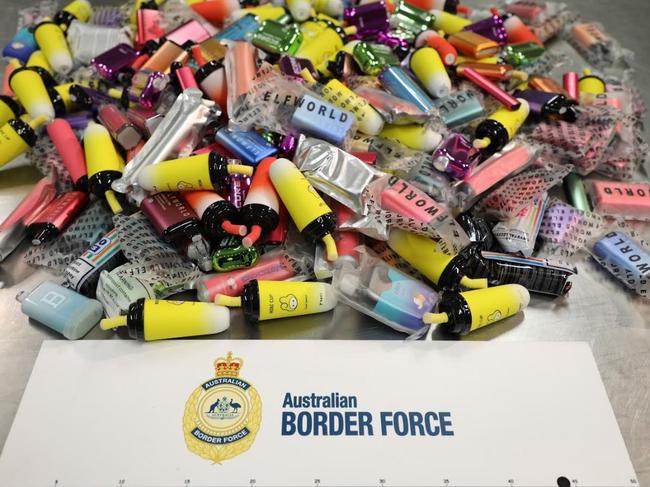
NSW had the most vapes found at 24 tonnes, and Victoria had almost 10 tonnes.
TGA laboratories conducted tests on 287 samples of the vapes labelled “nicotine free” and found 85 per cent contained nicotine. Many of the vapes are flavoured and in colourful packaging specifically designed to target children.
Authorities say the concealment by manufacturers of nicotine in vaping products is a significant issue and making it harder to police and enforce.
Home Affairs Minister Clare O’Neil said reducing the amount of vapes with nicotine finding their way into the community needs a multifaceted approach with enforcement and better education about the harms.
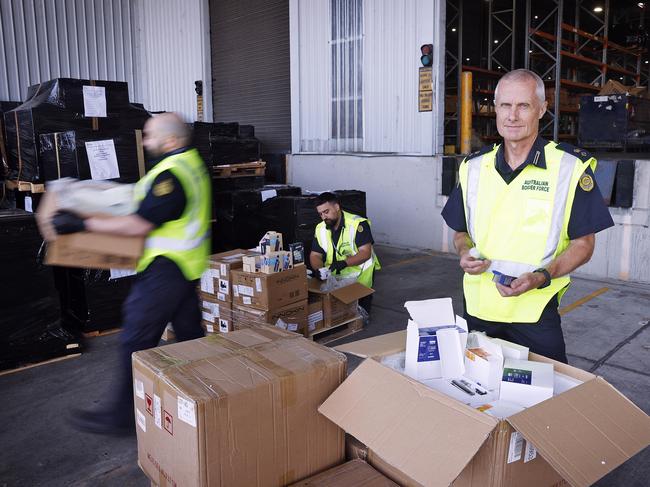
At least 68 per cent of the vapes found were disposable devices, the majority of which were brands previously identified as breaching minimum safety and quality standards for nicotine vaping products.
Vapes with nicotine in them must be imported under the guidance of the TGA and used on prescription only.
It is understood that vapes can be more complicated and expensive to seize and destroy than other prohibited goods, because they contain dangerous chemicals, lithium batteries, glass, metal and plastics.
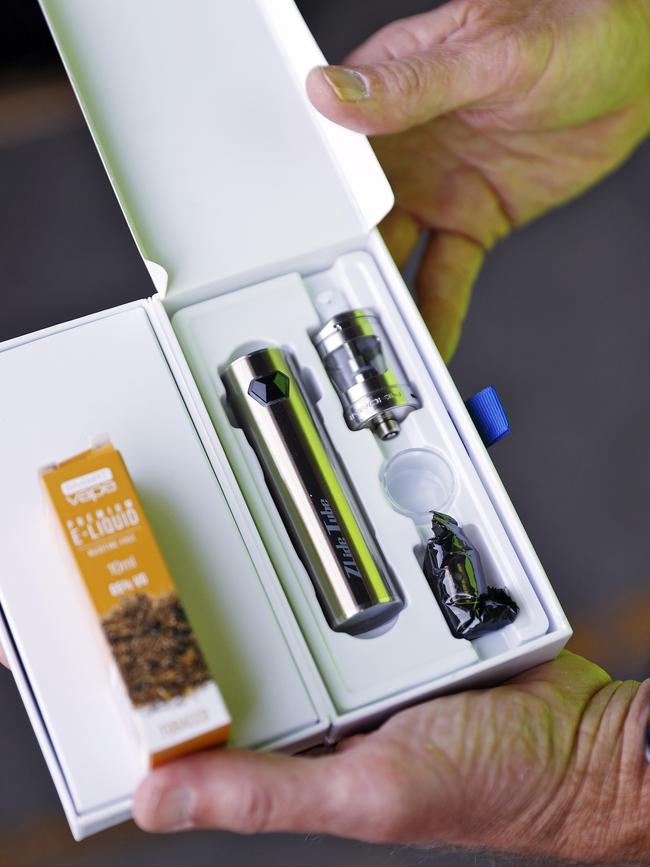
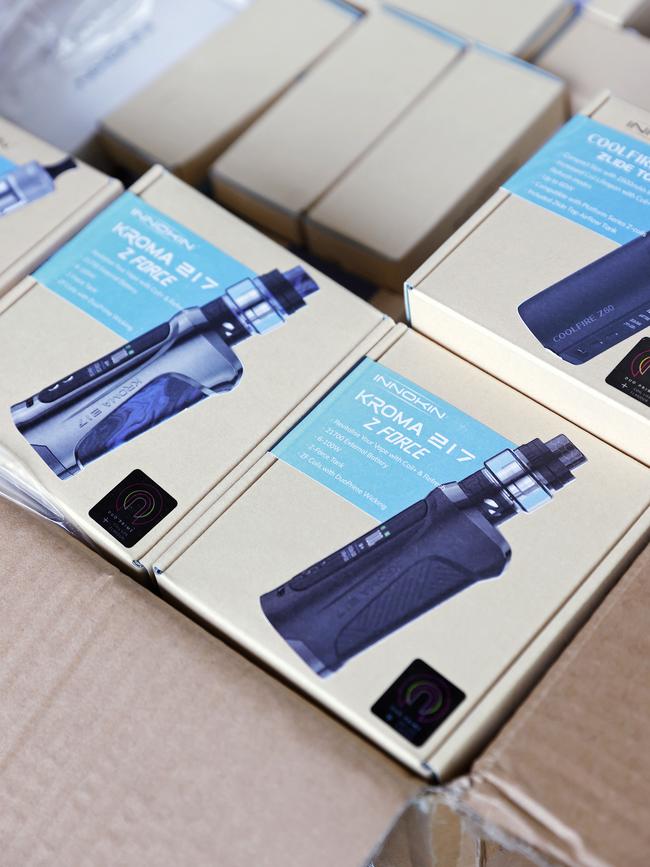
A recent report by the Australian Institute of Family Studies found vaping was associated with a range of mental health challenges, including anxiety, depression and stress.
New research has also identified that as many as 1.6 million Australian adults are now vaping – a total of 7.9 per cent of the over-18 population.
Since December, 308,000 more people have started vaping, representing an increase of 23 per cent – according to a Roy Morgan poll
A Cancer Council study has also reported that nine in 10 teenagers say buying illegal e-cigarettes is easy.
The study, Generation Vape, also found that more than two thirds of 14 to 17-year-olds had used a vape knowing that it contained nicotine.
Health Minister Mark Butler said the enormous volume of suspected unlawful vaping products seized in this campaign demonstrates the challenges in tackling this issue.
“Vaping is a public health menace that is targeting young Australians. The reforms being introduced by the Albanese Government will be pivotal to decreasing vaping rates in Australia and the harm it represents,” Mr Butler.
Penalties for the illegal importation or supply of counterfeit or unapproved therapeutic goods is up to five years’ imprisonment and/or a financial penalty of up to $1.25 million.





